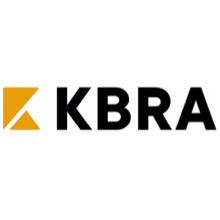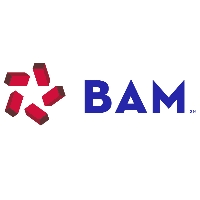The Mentoring Program
A Day in the Life - NEWPF Series
NEWPF Career Q&A Teleconferences
- Audio Recording from October 17, 2017 with panelists Elaine Brennan, Neene Jenkins, and Jessalynn Moro, moderated by Diane Brosen.
- Audio Recording from October 17, 2018, with panelists Alice Cheng, Kimberly Lyons, and Ana Yordanov, moderated by Diane Brosen.
- Audio Recording from September 17, 2019, with panelists Eileen Foley, Cate Singer, and Vanessa Youngs, moderated by Diane Brosen. (There is static for the first minute of the call, then it clears up).
|
About the NEWPF Mentoring Program
One of the most important objectives of Northeast Women in Public Finance is to provide support and encouragement to women who are new to the field of public finance or who are looking for career advice. The Board’s Mentoring Committee was one of its original governing committees, and a formal mentoring program was established in 2008. The success of the program, which now has approximately 60 mentoring pairs actively involved, is attributable to the core principle of the program:
Mentor/mentee relationships require time and work by both parties in order to be successful because trust develops as the mentor and mentee get to know each other better.
Goals of the NEWPF Mentoring Program:
-
Provide resources for junior women in the public finance industry.
-
Support learning as well as career and personal development.
-
Build supportive relationships.
How to Become a Mentor/Mentee:
-
Mentors and mentees must be active members of NEWPF. To join NEWPF, visit HERE.
-
Mentors typically have at least seven years in the industry.
-
Mentees typically have less than seven years in the industry.
-
Final matches are determined by the mentoring committee and will be confirmed via email.
-
The mentor will contact the mentee to arrange the first contact to discuss the topics below considered key success factors. Initial and ongoing contact can be in the form most convenient to the pairing - e.g., in person, via email, via internet, via text or via telephone.
Time Commitment:
- At least an hour a month, more if needed.
- The Mentoring Committee will evaluate the mentor-mentee match 3 months post-pairing to ensure the relationship is working.
Key Success Factors:
-
Discuss and agree on mutual expectations and goals at the first meeting. Click HERE for meeting ideas.
-
Agree to a regular meeting schedule. Click HERE for a sample meeting agenda.
-
If a meeting has to be canceled, reschedule it right away. You need to make a commitment to the partnership and you need to meet regularly.
-
Recognize that your partnership will take time and work.
-
Have an understanding of how best to communicate in between meetings (i.e., phone, email and/or text messaging. Feel free to use Zoom or other virtual meeting platforms).
-
The mentee should set the agenda for each meeting and both parties should stay focused on it. Click HERE for ideas on how to set development goals.
-
When feasible, meeting in person outside the formal meetings may improve the relationship. In addition, arranging "joint" meetings with another mentor/mentee pair may deepen the overall relationship.
-
You need to get to know each other and develop trust.
-
The relationship and topics discussed between the mentor and the mentee should be kept confidential.
Members of NEWPF are eligible to become a mentor or a mentee. Join NEWPF today and indicate your interest.
Ideas for Mentoring Success
Prior to the First Meeting
1. Mentor: The mentor will contact the mentee to initiate the first meeting.
2. Mentee: Answer these questions to prepare for the first meeting:
• What are your long-term career goals?
• What specific development needs do you have to meet your long-term career goals? Click HERE for SMART Goals worksheet.
Suggestions for First Meeting
1. Get to know each other
2. Share your personal reason for being a mentor or mentee
3. Mentee: Share your career and development goals
4. Mentor: Share information on how your areas of expertise can help your mentee
5. Discuss whether you’ll have a structured agenda for each meeting and who will be responsible for setting the agendas (It is recommended that the mentee be responsible for setting the agenda.)
6. Agree to a time commitment including when, where and how often you’ll meet
Suggestions for Subsequent Meetings
1. Mentee: Prepare agendas that meet your goals
2. Discuss what has taken place since the previous meeting
3. Mentor: Offer constructive feedback
4. Reflect on development success
5. Include opportunities to learn from each other: discuss professional articles, introduce each other to networking contacts, discuss your personal interests etc.
6. Set check-points, such as quarterly, to monitor the success of the program and to reevaluate career and development goals
Progress Check
Mentee: On a quarterly basis or mid-year, review your developmental goals.
1. Are you making progress towards achieving your developmental goals?
2. Are your goals still relevant?
3. What are your next steps?
Suggestions for the Closing Meeting
1. Celebrate the positive changes
2. Mentee: Determine how you will apply what you have learned as a result of the relationship
3. Agree on how to keep in touch
Set Development Goals
1. What is your role?
2. What are your current areas of responsibility? Do you like these areas?
3. What role would you like to achieve? What responsibilities does that role entail?
4. What are your long-term goals?
5. What are the steps to achieve your long-term goals?
6. What is the timeline for those steps?
7. What challenges need to be overcome to meet your long-term goals?
8. How can your mentor help you to achieve your goal(s)?
SMART Goals
SMART goal is a method for setting actionable targets to meet goals.
Specific – What are you trying to accomplish? What will you be able to do as a result of accomplishing this goal?
Measurable – How can success be measured? Is there a trackable benchmark?
Attainable – Is the goal realistic? Are you willing to work towards this goal?
Relevant – Why does the goal matter to you?
Timely – What is the time frame for accomplishing this goal? Are there milestones to incorporate into the timeline?
Meeting Agenda Ideas
1. Greeting / Check-in
2. Development discussion
a. Review goals
b. Assess progress
c. Identify opportunities and challenges
d. Give and receive feedback
e. Discuss personal topics and interests
3. Set action items
a. Set goals and identify next steps
b. Confirm next meeting
March 2022 Mentoring Kickoff on Zoom

March 2021 Mentoring Kickoff on Zoom


April 2019: Annual Mentoring Event
April 2018: Annual Mentoring Event
|





















